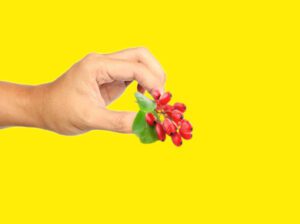
Side effects of goji berries
Goji berries are considered the new super fruits. The fruit has long been known under the name “common wolfberry” or “Chinese wolfberry”. The berry is valued and even revered in many countries for its health-promoting properties.
That being said, a common question that I get is; what are the side effects of goji berries? Here I provide my researched answer, along with some other details about goji berries you should know.
Do the goji berries have side effects?
Side effects of goji berries: Are goji berries toxic?
There are some people that believe that the fruit is inedible and even extremely toxic – even to this day. The reason for this originates in the 19th century, where it was thought that the berry was dangerous to eat.
The reason for the thought that goji berries are toxic began around 130 years ago. At the end of the 19th century, a study appeared that said that the fruits of the common wolfberry, like the thorn apple and the bell cherry, contained hyoscyamine. The fruits were then (wrongly) classified as toxic.

It was believed that consuming the berries would trigger intoxicating conditions that would lead to side effects such as vomiting, abdominal cramps, mental confusion, depression, and eventually death.
However, this study was refuted the following year. Modern pharmacological studies have shown that the goji berry contains only tiny traces of hyoscyamine, which are non-toxic when consumed .
If you want to convince yourself of the harmlessness of Goji berries, we recommend the looking over the studies in research gate . This reveals in depth studies of the safety of consuming goji berries.
Goji berry allergy
Although rare, allergies can occur with goji berries. Anyone allergic to the foods belonging to the nightshade family will have issues with goji berries.

Some cases of allergic reactions after taking goji berries have been reported. One author documented two cases of anaphylaxis accompanied by generalized urticaria, edema, dyspnea, and acute rhinitis after ingesting the berries.
Allergy tests confirmed goji berry allergy in both cases due to cross-reaction with tomato proteins (1). Other similar cases were analyzed, revealing cross-reactivity with peach, dried fruit, and tobacco
Goji berry and low blood pressure
One of the main benefits pointed out for goji berries is its antioxidant function, which involves the production of nitric oxide ( NO), a potent vasodilating agent.
This makes goji berries incredibly useful when it comes to lowering blood pressure. So much so that some studies suggest that goji berries may be used as a traditional treatment for
In addition, studies point to a possible role in inhibiting the renin-angiotensin system, which may justify the use of goji berries as a traditional treatment for hypertension ( 2 ).
If you have low blood pressure by nature or if you take medication to lower it, ask your doctor or nutritionist for advice before starting to eat goji berries.
Some of the drugs that may interact with goji berries are captopril, enalapril, losartan, valsartan, diltiazem, amlodipine, hydrochlorothiazide and furosemide, among others ( 3 ).
Side effects of goji berries in high-risk groups
Caution is advised if blood-thinning medication is taken at the same time, since goji berries are said to increase the blood-thinning effect .
Goji berries also interacts with some drugs. So those if you take warfarin (a blood thinner), it may be a good idea to avoid goji berries.
You May Also Like

Are dried goji berries keto friendly?

5 Fun Ways to Use Goji Berries

